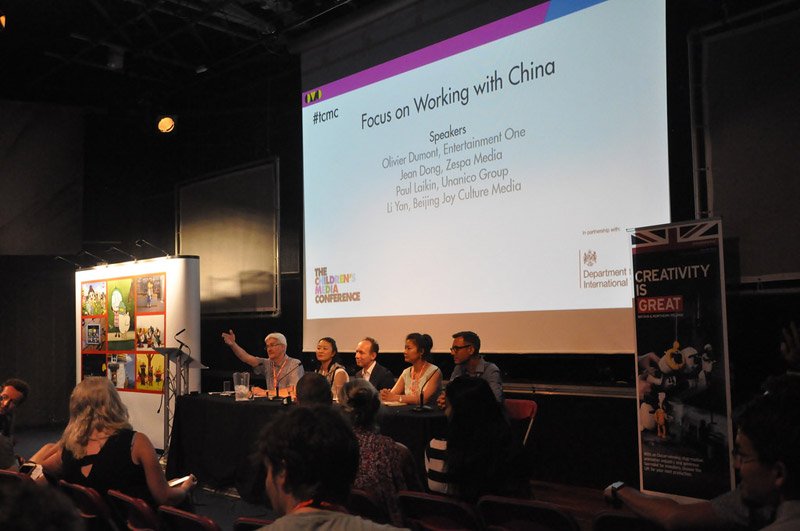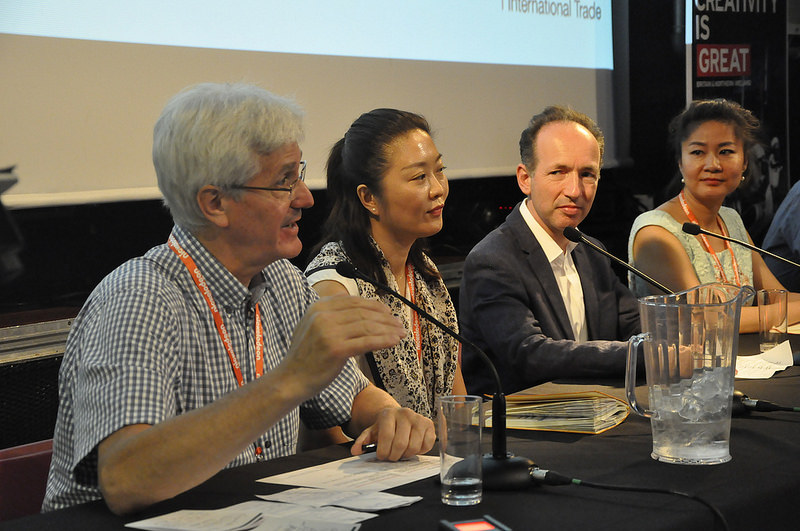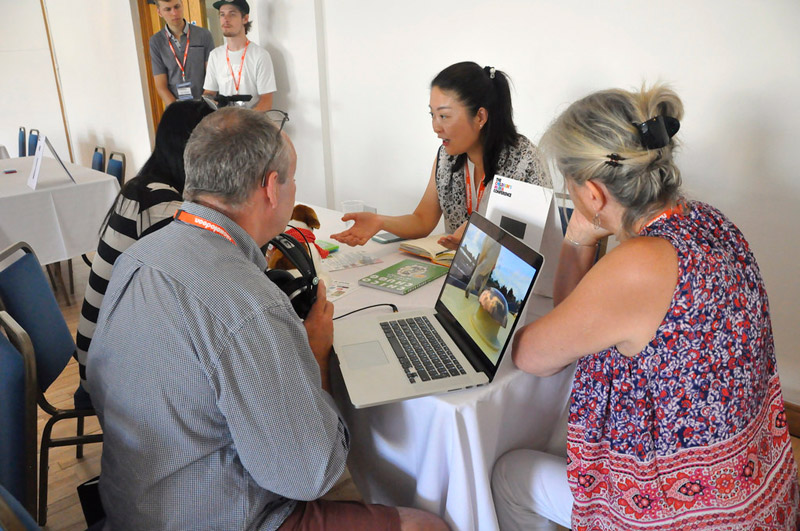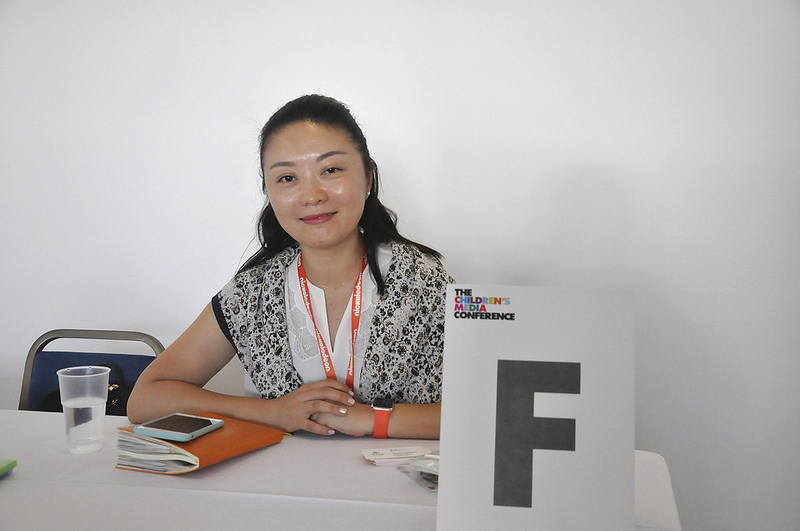The opportunities in the Chinese market are clear, but the routes to market are less so. This session will seek to answer key questions around content distribution, including who the current main players are in the industry and how to approach them. Going hand in hand, we discuss Intellectual Property and how to protect your content as best you can. Finally, we’ll round up with deal making advice, covering realistic timescales as well as recommended companies in China who can help. This promises to be a session packed with juicy nuggets of information and one not to miss if you’re looking to seriously tackle the Chinese marketplace.
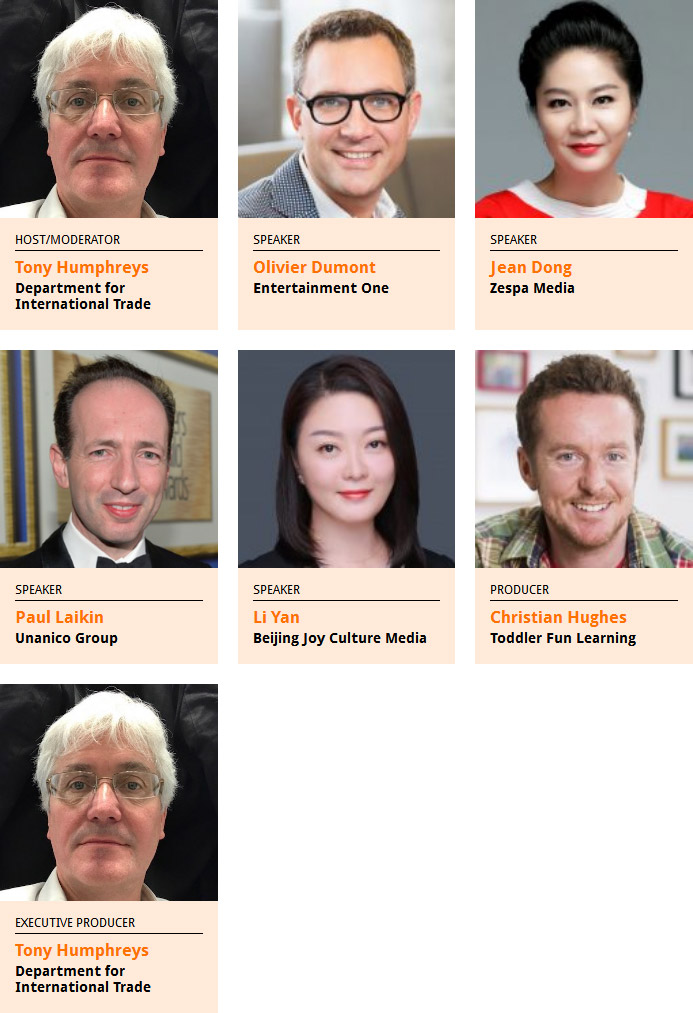
Takeaway:
◇ The Chinese market does not have the same content-first approach as other territories – IP is key.
◇ Contracts are vital in the Chinese market.
◇ Localisation is important for Chinese audiences.
Detail:
Tony Humphries, Screen Specialist at the Department for International Trade, introduced the session by detailing one of the key differences between the UK and Chinese markets – in the UK system there is a focus on content first, whereas the Chinese market has a large focus on building brands and exploiting IP.
Olivier Dumont, President of Family and Brand at Entertainment One, also has experience with the IP-driven Chinese Market. When they took one of their top properties, Peppa Pig, which is over 15 years old, to China, they found that someone had already registered the IP years previously, forcing them to buy it back. For content producers, Olivier said that IP protection is a starting point for developing your IP into a brand in China.
Chairwoman at Zespa Media Jean Dong also emphasised the business nature of the Chinese market, stating that developing an IP is brand building. China has a commercial slant on their commissioning process, so producers who go into meetings with a plan for developing their show into a brand have the edge. Zespa Media look for early stage content which can be localised, and they look for strong characters and storytelling, that is China-friendly (i.e. cute and cuddly).
Li Yan, Founder and General Manager of Bejing Joy Culture Media, discussed how localisation is key to breaking into the Chinese Market – she recently brought a Russian show over to China, and it was important to infuse it with local humour to ensure that Chinese kids love it.
Unanico Co-Founder and Managing Director Paul Laikin discussed the importance of seeing your Chinese counterparts as partners and to demonstrate commitment and trust in them. Paul also highlighted that there are less political issues between the UK and China than there are with other territories, which works in favour of British producers.
There was a guest appearance by Tom Duke, UK IP Attaché to China and Hong Kong. He said that producers should think ahead, as China has a significant problem with IP registration and they should ensure that all contracts are ‘China ready’ and have been seen by Chinese Lawyers in advance. IP rights are the best protection against Piracy in China.
For final Top Tips, the offerings were varied – Li Yan said to understand what Chinese kids and parents want and need from content, Paul Laikin said to move quickly if a Chinese company is interested in your project, Jean Dong advised producers to be ready to be flexible, and Olivier Dumont said to make getting into China a priority for your IP. Next year, China will be the biggest market for Peppa Pig – even above the US.



